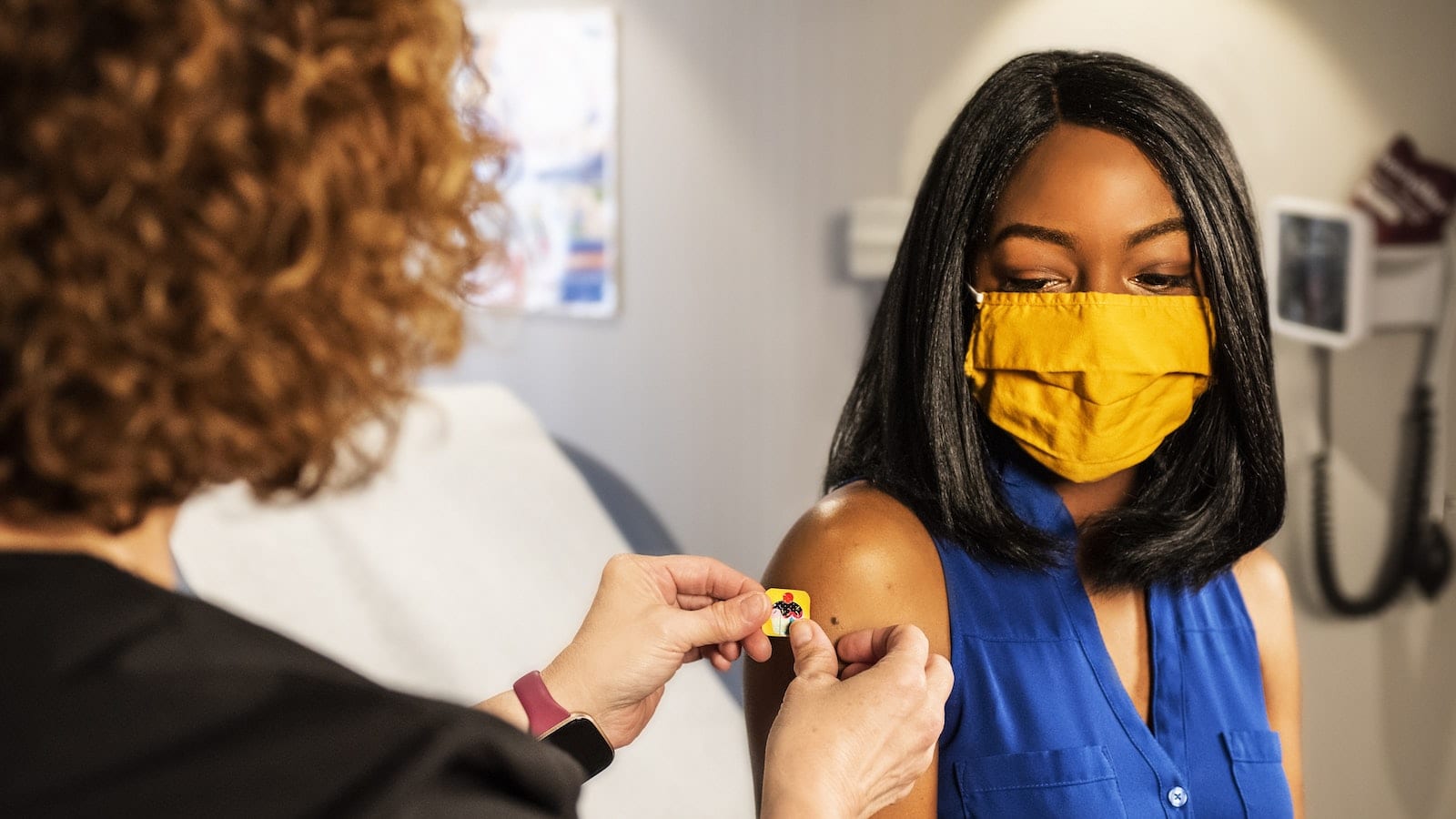UAMS Researchers Find Link between Experiences of Racism and Vaccine Hesitancy among Black Arkansans
| FAYETTEVILLE – Researchers at the University of Arkansas for Medical Sciences (UAMS) Office of Community Health & Research have found that Black Arkansans who reported racial discrimination in the criminal justice system also experienced higher levels of hesitancy toward COVID-19 vaccines.
According to the Arkansas Department of Health, only around 41% of Black Arkansans five years of age and older have been vaccinated against the coronavirus. In some Arkansas counties, more than 70% of the Black population remains unvaccinated.
UAMS researchers collected data from a random sample of adult Arkansans in July 2021. About 51% of Black Arkansans 18 and older reported some level of vaccine hesitancy. Researchers explored multiple factors that could lead to vaccine hesitancy, including sociodemographic characteristics such as age, gender and education; exposure to COVID-19 and COVID-19-related deaths; and experiences of racial discrimination. While racial and ethnic disparities in vaccine hesitancy are well documented, the study explored within-group variation among Black respondents to analyze the diversity of experiences, and how those experiences relate to vaccine hesitancy
“This research shows that COVID-19 vaccine hesitancy varies among Black adults, and that experiences of racial discrimination with police, or in courts, are an important factor in understanding that variation,” said Don Willis, Ph.D., a researcher and assistant professor in the UAMS Office of Community Health & Research. “This data suggests that we need to pay special attention to how racial discrimination in policing and courts may impact public health, preventive care like vaccination campaigns and racial health disparities.”
Researchers found that individuals who reported having a close friend or family member die from COVID-19 were 70% more likely to experience COVID-19 vaccine hesitancy. Those who had experienced discrimination with police or in the criminal justice system were 161% more likely to be vaccine hesitant. Other experiences of racism, such as in school or housing, were not significantly associated with vaccine hesitancy among Black adults.
The UAMS findings were published in the Journal of Racial and Ethnic Health Disparities.
The COVID-19 pandemic is expected to reduce life expectancy by more than two years for Black individuals in the United States. According to the Centers for Disease Control, Black populations have faced higher rates of cases, hospitalizations and deaths due to the pandemic than white, non-Hispanic populations.
As of Monday, May 2, the Arkansas Department of Health has reported more than 11,300 deaths from COVID-19. Less than 56% of the state’s eligible population is fully immunized. According to the ADH, about 80% of the state’s COVID-19 hospitalizations since last February are among unvaccinated patients.
For information about COVID-19 vaccination and testing services in Northwest Arkansas, visit nwa.uams.edu/covid.
This research was supported by the following:
- NIH Community Engagement Alliance Against COVID-19 Disparities (CEAL), grant 10T2HL156812-01
- UAMS Translational Research Institute, funded by the National Institutes of Health (NIH) Clinical and Translational Science Award UL1 TR003107
- NIH Rapid Acceleration of Diagnostics (RADx), grants 211 V2-53667-03 and 3 R01MD013852-02S3
- NIH National Heart, Lung, and Blood Institute, grant OT2 HL156812
UAMS is the state’s only health sciences university, with colleges of Medicine, Nursing, Pharmacy, Health Professions and Public Health; a graduate school; a hospital; a main campus in Little Rock; a Northwest Arkansas regional campus in Fayetteville; a statewide network of regional campuses; and seven institutes: the Winthrop P. Rockefeller Cancer Institute, Jackson T. Stephens Spine & Neurosciences Institute, Harvey & Bernice Jones Eye Institute, Psychiatric Research Institute, Donald W. Reynolds Institute on Aging, Translational Research Institute and Institute for Digital Health & Innovation. UAMS includes UAMS Health, a statewide health system that encompasses all of UAMS’ clinical enterprise. UAMS is the only adult Level 1 trauma center in the state. U.S. News & World Report recognized UAMS Medical Center as a Best Hospital for 2021-22; ranked its ear, nose and throat program among the top 50 nationwide for the third year; and named five areas as high performing — colon cancer surgery, diabetes, hip replacement, knee replacement and stroke. UAMS has 3,047 students, 873 medical residents and fellows, and six dental residents. It is the state’s largest public employer with more than 11,000 employees, including 1,200 physicians who provide care to patients at UAMS, its regional campuses, Arkansas Children’s, the VA Medical Center and Baptist Health. Visit www.uams.edu or www.uamshealth.com. Find us on Facebook, Twitter, YouTube or Instagram.
The UAMS Northwest Regional Campus includes 288 medical, pharmacy, nursing and health professions students, 64 medical and pharmacy residents, two sports medicine fellows, and 1,000 community-based faculty. The campus has nine clinics including a student-led clinic and physical, occupational and speech therapy. Faculty conduct research to reduce health disparities. Visit www.uams.edu or www.uamshealth.com. Find us on Facebook, Twitter, YouTube or Instagram.
